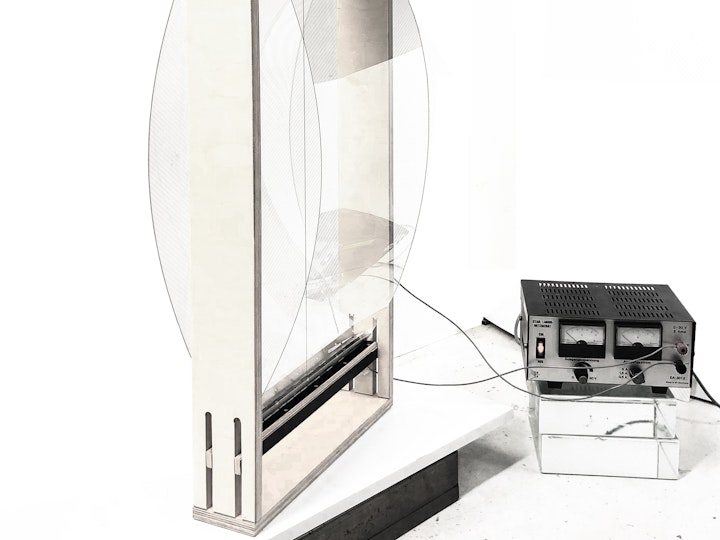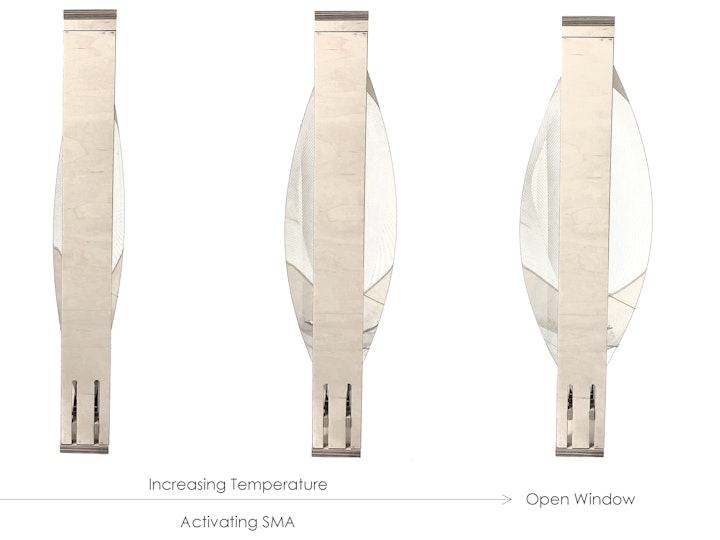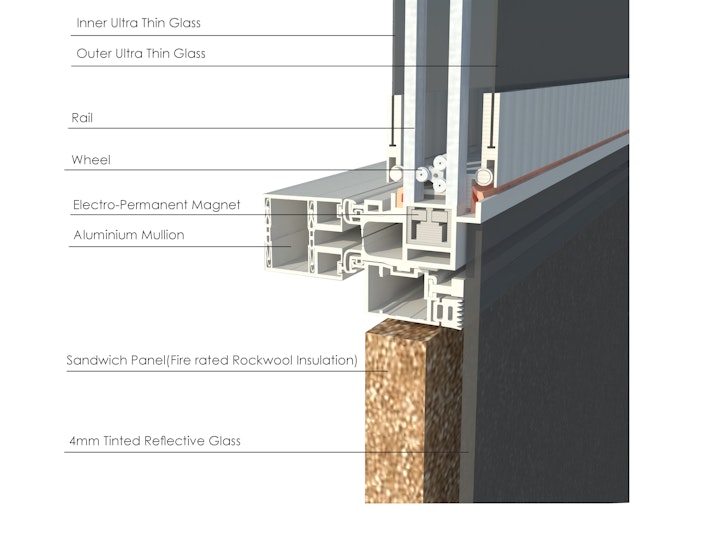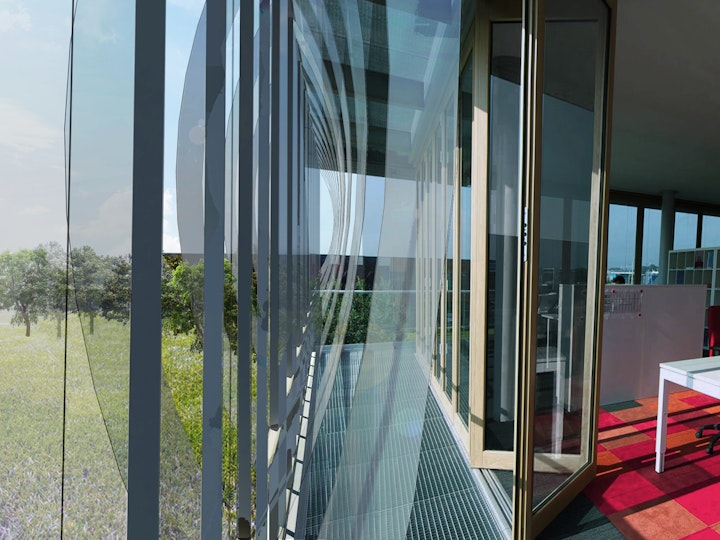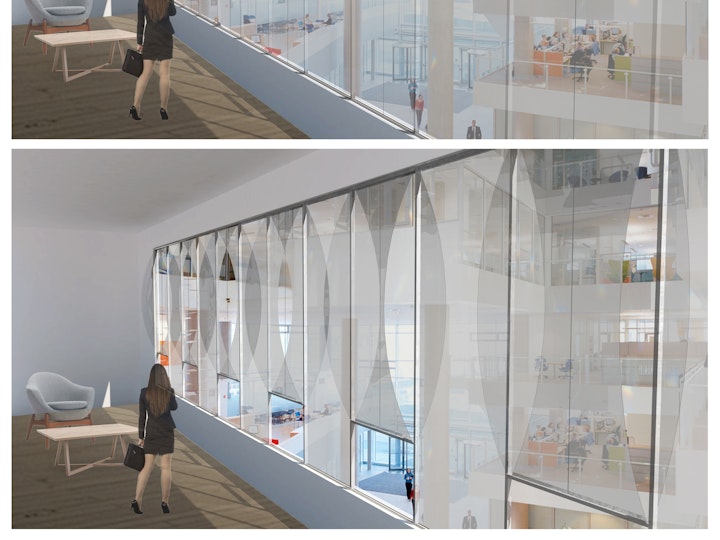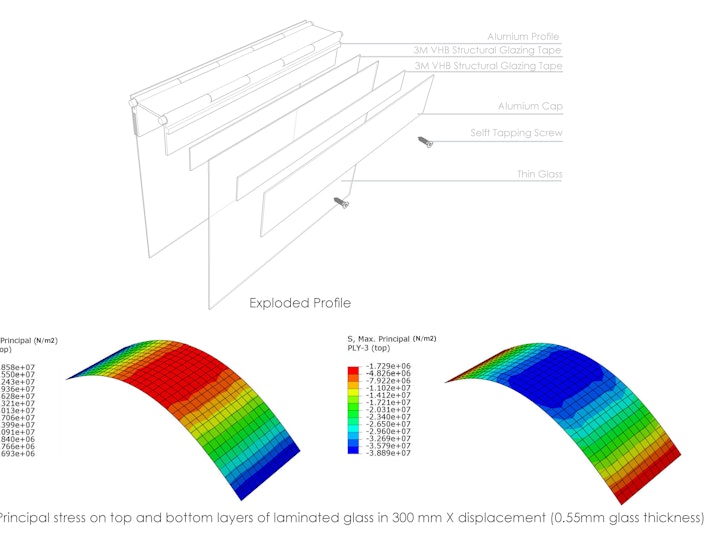Master Thesis, TU Delft, 2018
For her [Master Thesis], Bahareh explored smart, lightweight, and adaptive architectural solutions enabled by the rapid evolution of construction materials. Her research focused on ultra-thin glass, a material with the potential to replace traditional thicker glazing and unlock new possibilities in transparency, weight reduction, and flexibility. By capitalizing on the material’s bending capacity and dynamic responsiveness, she developed an adaptive breathing skin that can function as an exterior layer within a double facade or as an interior element, such as an atrium window.
To drive this system, Bahareh investigated the integration of Shape Memory Alloys (SMA) as actuation elements. She designed a novel adaptive panel system using SMA cables to create responsive inner and outer façade skins. The structural validity of the concept was confirmed through finite-element simulations in Abaqus, where she analyzed various laminated glass configurations under bending and wind loads.
To bridge the gap between theory and practice, Bahareh constructed two physical mock-ups which were exhibited at the Challenging Glass Conference 6 at TU Delft. This demonstration showcased the real-world potential of ultra-thin glass in adaptive façades. The research was subsequently published in [Heron Journal] and featured in [Detail Magazine] as a pioneering application of responsive architecture.






